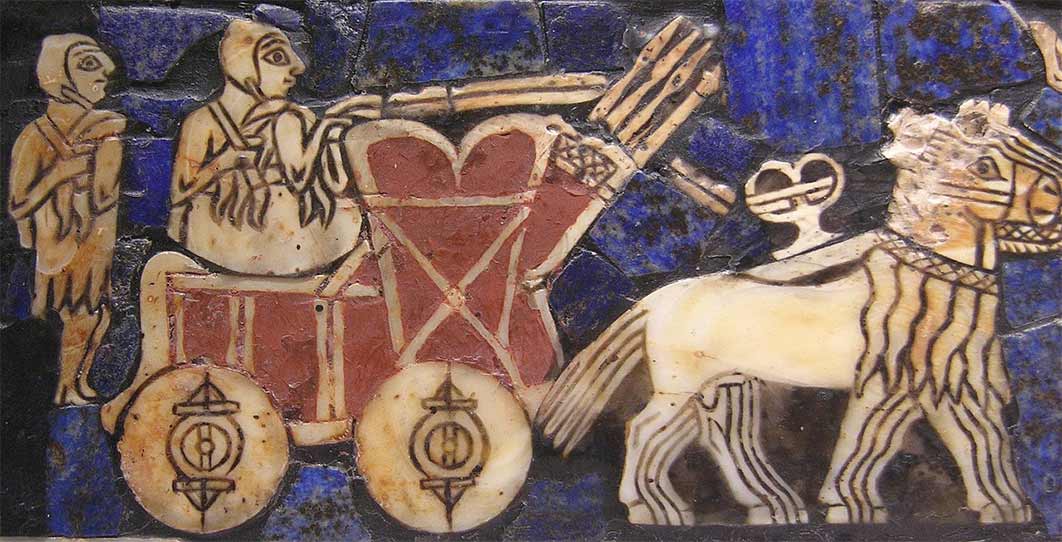
Epistemology of Ancient Lost Technology
What is “lost knowledge”? As human civilizations arise and develop, they accumulate knowledge. That knowledge has many forms, from the pragmatic to the theoretical. In most cultures, there is a significant body of what one might call ‘organic’ or indigenous knowledge: an understanding of plants and natural medicines, for example, or the ability to track an animal, or the methods for building a structure out of earth, wood, stone, or other material. That knowledge is accumulated in various informal ways over centuries and even millennia, while in the rapid progression to modernity it can be become lost in just a generation or two.

The wheel, invented sometime before the fourth millennium BC, is one of the most ubiquitous and important technologies. This detail of the "Standard of Ur", c. 2500 BC., displays a Sumerian chariot (Public Domain)
Consider a specific kind of knowledge: technological knowledge, and ideas about machines and devices in particular. Human beings seem to have a natural affinity for technology in this regard: even the most remote of mankind’s ancestors made things — arrowheads, flint tools, and so on. Humans are not just Homo sapiens but also Homo faber: humans create and uses technology, and in turn it defines them as human beings. Without doubt, other animals use tools, but the extent to which technology shapes human cultures is unique.

Caveman Makes First Primitive Tool for Hunting Animal Prey (Gorodenkoff / Adobe Stock)
Ancient References To Technology
What is interesting is that the idea itself of humans as technological beings is quite ancient. One tends to think of technology and the human use of technology as a modern phenomenon, but humans’ engagement with machines and devices — and speculations about them — goes back millennia. Early writers in a wide range of genres discussed technological themes. But this means that ideas about technology were often contextualized and transmitted in a way that was far less specialized than current contemporary modes of the Internet, textbooks, and subject-specific technical instruction. In early sources, even serious considerations of technology are found embedded — and sometimes placed almost in passing — in historical chronicles, fantastical tales, and other types of written and oral sources.

Ancient texts allude to lost knowledge ( Juan Aunión / Adobe Stock)
Early writers also frequently pondered the specific idea that there was knowledge of technologies that had been lost in the remote past. Writers from Plato to the Daoist scholar Ge Hong (葛洪) ruminated on lost civilizations and lost technological capabilities. In a marked contrast to the present view of technological development as linear, these early thinkers often articulated a cyclical model of knowledge, and attributed to their ancient predecessors technological abilities that one might consider as modern and sophisticated as current technologies, such as mechanized flight.




